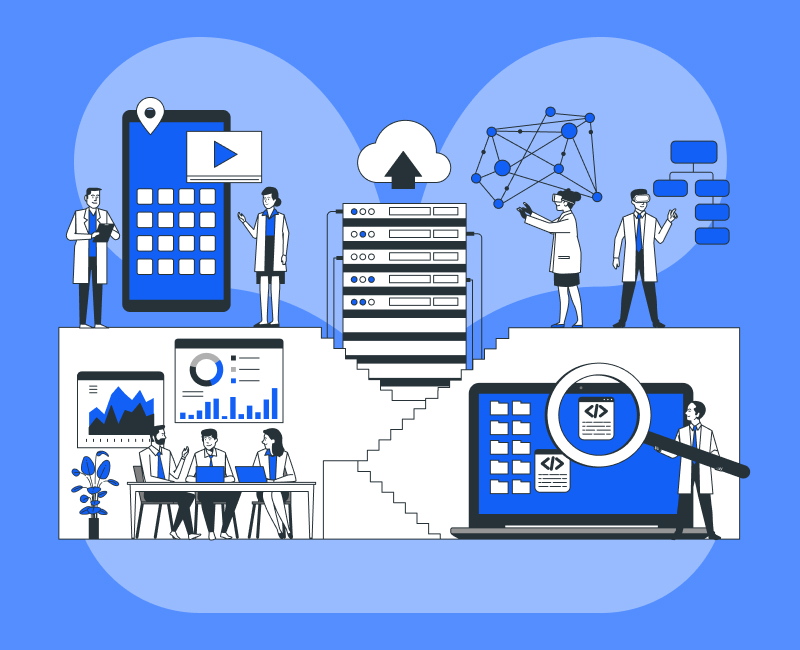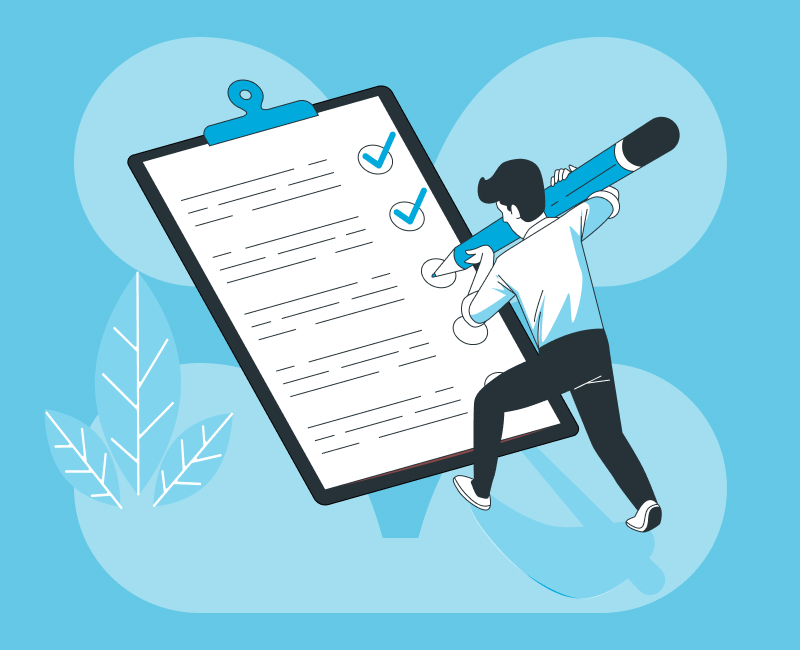A Guide to Interview Scheduling Software
The hiring process has changed
If we look at the past decade, it’s clear how much the job interview process for frontline and hourly workers has evolved. Once only possible over the phone or in person, both job seekers and recruiters can now participate in more convenient interview methods, all thanks to advances in technology.
Today, interviews are no longer the cumbersome and time-draining steps they used to be. Thanks to innovations like interview scheduling software, recruiters can save considerable time and effort and get candidates hired faster.
To ensure you’re hiring the right candidates and to keep them moving through the hiring funnel at a fast enough pace, your recruitment teams need to embrace the future of high volume hiring, which includes the interview process.
The importance of efficient interview scheduling
Although the job interview is just one piece of the greater hiring puzzle, it is often the most important, especially for customer-facing roles. Interviews are a chance for recruiters to see how a candidate might interact with customers, how they communicate, and whether they can think on their feet.
An optimized interview process that involves automation and personalization can help save recruiters time and enhance the candidate experience—a win-win for both sides. The more efficient your interview process, the faster your candidates will make it through the hiring funnel and the closer you’ll get to reaching your hiring goals.
How can you get there? By adopting interview scheduling software that can take care of time-consuming tasks so you can get back to what matters most: hiring.
Let’s explore what to look for in interview scheduling software and how it can play a role in a truly transformed recruiting process.
What is interview scheduling software?
Interview scheduling software is designed to facilitate interview scheduling through features like calendar integrations and automated communication with candidates. Candidates can peruse and reserve interview timeslots based on recruiter availability, removing the need for live discussions about scheduling.
Depending on the interview style, some software also supports the uploading of videos and one-to-one live video interview formats.
When the goal is to fill roles fast, as it often is with high volume hiring, interview scheduling software can help save both recruiters and candidates valuable time.
Differentiating from traditional scheduling methods
Using interview scheduling software differs from traditional interview scheduling methods in the following ways:
Automation
Traditional interview scheduling requires manual involvement for everything from candidate outreach to updating recruiters’ calendars. But with advancements in interview scheduling software, recruiters can program these tasks to occur automatically.
Candidate autonomy
Traditionally, recruiters are responsible for contacting candidates and setting up interviews, but interview scheduling software puts this duty in the candidates’ hands, freeing up time for recruiters.
Access to recruiters’ schedules
To accomplish the above, candidates can take advantage of interview scheduling software to access recruiters’ schedules and find an interview time that works for all.
Analytics and insight
Unlike traditional interview methods, using software to schedule interviews also offers the opportunity to track the software’s efficiency and make tweaks to improve performance.
Scalability
Once recruiters have established an interview scheduling system that works best for their needs, interview scheduling software can be replicated and scaled as hiring needs grow and change.
Challenges in high volume hiring
Manually scheduling interviews isn’t necessarily a major stressor for recruiters for corporate roles, but if you need to hire hundreds (or even thousands) of workers in a short amount of time, any manual task can add precious minutes to a process that needs to be fast, efficient, and easy for applicants.
Time constraints and inefficiencies
Frontline workers want a speedy and simple hiring process, preferably one they can engage with entirely on their mobile phones. To cater to these workers, recruiting teams need mobile-friendly recruiting systems that can reach candidates anytime, anywhere.
Managing multiple candidates simultaneously
Hiring high volumes of workers means recruiters may be juggling thousands of applications at one time. Managing these applications and workflows can be a huge time and productivity strain for recruiters.
Coordinating with various stakeholders
Tasks like scheduling interviews, conducting interviews, and post-interview debriefing don’t always fall to the same people on the recruitment team, which creates a risk for miscommunication. Add applicants into the mix, and this risk only multiplies.
Features of top interview scheduling software
Today’s interview scheduling solutions are built to handle the challenges mentioned above, and more. Keep reading to learn how your interview process can improve with the right software.
Automated scheduling and reminders
Interview scheduling software can be programmed to send interview invitations and reminders directly to candidates through email or text message, making it easy and convenient for all participants to coordinate and show up for interviews.
Integrations with other HR tools
Rather than starting from scratch with an entirely new applicant tracking system, interview scheduling software and its features—like calendar integrations and video communication platforms—can be seamlessly integrated into an existing tech stack.
Centralized communication hub
Interview scheduling software offers features that facilitate timely communication, like automated email or text message responses. Using these features, recruiters can confirm interview times, discuss interview logistics, and even exchange important documents if needed, ensuring candidates are informed of important steps and stay engaged throughout the process.
The role of AI in interview scheduling
A discussion of technology ultimately leads to a discussion about artificial intelligence (AI). Here’s how AI can help you schedule interviews with ease.

Enhanced candidate experience through AI-driven interactions
When you’re not able to respond to candidates’ every request or question, AI can take care of this for you. Programmed messaging can send replies to candidates via a careers page chatbot, text, or email, with the option to contact recruiting staff in the case of more complex questions.
Calendar-informed scheduling assistant
Through smart conversations with candidates, AI-powered chatbots can set up interviews by pulling data from recruiters’ calendars and sending day and time options directly to candidates.
Benefits of using interview scheduling software in high volume hiring
Recruiters who hire high volumes of workers are perfect candidates for a tool like interview scheduling software. Here are just a few reasons why:

Streamlined operations and time savings
Recruiting for hourly positions often requires managing a high volume of applications, which can be hard for recruiters to manage. Interview scheduling software can help streamline the entire hiring process by automating the scheduling function.
Reduced scheduling conflicts and errors
Frontline workers have schedules that differ from the typical 9-to-5 workday. Therefore they need to be able to complete job applications when it’s most convenient for them. With interview scheduling software, job seekers can see recruiters’ schedules and sign up for an interview slot that works for both people involved, or they can record a video interview at their leisure and send it to recruiters by email or text message.
Enhanced candidate experience
By granting applicants the ability to schedule their own interviews with recruiters, candidates can feel more engaged in the hiring process and can set up conversations when it’s most convenient for them. This can provide a sense of autonomy for candidates who might feel like they’re always waiting on recruiters for the next steps.
Real-world applications in key industries
What to consider when choosing an interview scheduling software
Ease of integration with existing systems
When considering interview scheduling software, you want to make sure the solution you choose can seamlessly integrate with the tools you already use. This can help you get up and running faster and decrease the learning curve for your recruiting team.
Scalability and flexibility
Once integrated into your existing hiring process, your interview scheduling software should be easy to replicate and make adjustments to as your hiring needs change over time.
Cost-effectiveness and ROI
Implementing interview scheduling software should be a substantial cost-saving measure. A system that allows you to perform regular audits will set a baseline to analyze cost-effectiveness over time.
Fountain's role in revolutionizing high volume hiring
Fountain is at the forefront of high volume hiring technology. Companies around the world use Fountain Hire to hire millions of workers every year, and interview scheduling is just one part of our solution.
Leveraging AI for predictive scheduling
Automation and AI help engage candidates and swiftly move them through the hiring process with minimal effort from recruiters. Automatic interview scheduling helps save recruiter time and reduce no-show rates.
Seamless integration with other hiring tools
Rather than investing in a whole new solution, Fountain allows you to build on the investments you’ve already made by integrating with your existing hiring technology.
Empowering hiring managers and candidates alike
Fountain’s complete hiring solution makes it easy for both hiring managers and candidates to control their movement through the funnel. This sort of autonomy has a lasting effect on worker longevity and loyalty, and helps offload recruiters’ tasks.
 Nico Roberts
Nico Roberts